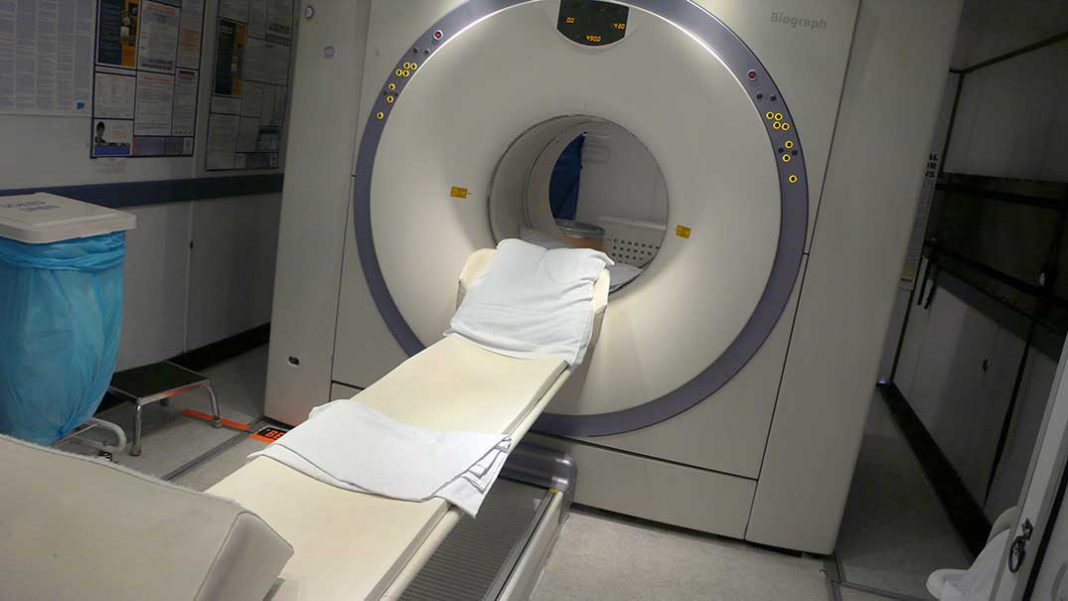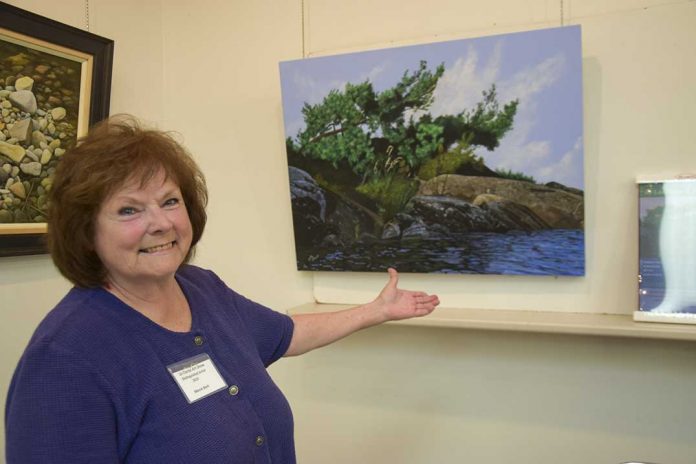LITTLE CURRENT – Manitoulin Island will not be getting its own computed tomography (CT) scanner at any point in the near future after the Manitoulin Health Centre (MHC)’s medical advisory committee (MAC) deemed its business case to be an unsuitable fit for the Island at this time.
“We felt it was important to present a balanced business case, so Paula (Fields, VP of clinical services and chief nursing officer) focused on the clinical aspects and Tim (Vine, VP of support services and chief financial officer) focused on the business aspects,” said Lynn Foster, president and CEO of MHC, at a board meeting last Thursday. “There was a fair bit of discussion (at MAC).”
That committee released its official recommendation that MHC not proceed with the CT scanner at this time; however, “in looking to the future they do recommend that the issue be revisited within five years,” said Ms. Foster.
She told The Expositor that the business case took into account the perspectives of Health Sciences North in Sudbury, where MHC’s current CT patients have to go to access these services. It also included smaller centres such as Elliot Lake which is working on implementing its own CT scanner.
Ms. Fields consulted with physicians and nursing staff to gather their perspectives and obtained a wide range of opinions on the matter, with no strong leaning in either direction.
“We also did some literature review to see what the evidence was for having a CT scanner in a Northern rural setting. There was no compelling evidence there either, to swing either way,” said Ms. Foster.
Potential benefits of the service included decreased travel, improved patient satisfaction, increased likelihood of patients undergoing scans and faster access to thrombolysis (a treatment to get rid of blood clots) for stroke victims.
Possible downsides included increased exposure to radiation, insignificant findings through the scans and increased patient demand. Any CT scanner that MHC would be able to get would be a less robust model than is available at Health Sciences North, meaning the scope of scans would be much narrower and many severe patients would still need to be transferred to HSN for more in-depth scans.
The scanner would increase the attractiveness of MHC for locum health practitioners, would offer better clinical information for specialist consultations, allow for more responsive care if a patient’s health deteriorates during the diagnostic process and a reduction in the necessity for nursing escorts.
However, more staff would be needed to interpret the imaging, there is a risk of using the scanner for ill-fitting conditions, money would have to be re-allocated away from other services to fund the CT scanner and a great deal more training would also be required.
The final element of the assessment was the business side, looking at how much of an impact the service would have. The team assessed patient volumes over the past three years and accounted for a likely increase in referrals due to local practices being more inclined to refer patients to take CT scans if they were more accessible.
“It would look like an incremental increase in costs,” said Ms. Foster. Although the hospital would be able to save more than $200,000 each year based on the projected costs of sending patients to have CT scans at Health Sciences North, in addition to receiving extra revenue for having the service through an OHIP professional fee, this pales in comparison to the operating expenses of the scanner.
A copy of the business plan includes a five-year cost analysis, with the scanner projected to cost MHC $225,000 in its first year and growing to $260,000 in its fifth year. This would result in a net loss of nearly $1.2 million over the first five years combined.
The cost of buying a scanner in the first place is also a consideration—generally speaking, the Ministry of Health does not fund CT scanner purchases. Other hospitals in Northeastern Ontario who have purchased their own scanners have pegged the cost at about $1 million.
Because of the above factors, the MAC resolved that having a CT scanner on Manitoulin Island would not be a sound decision at the current moment. However, the committee has suggested that the case be revisited periodically in the future to be ready for, if and when that feasibility may change.




